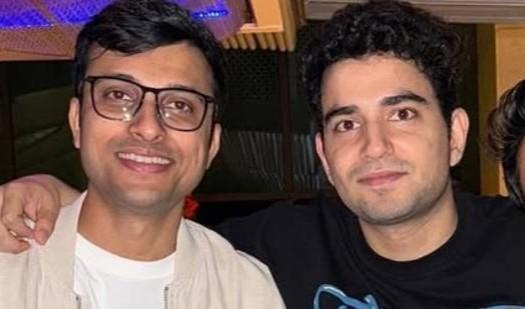
Bizarre: Comedian Aashish on controversy over Allahbadia’s remark
The recent controversy surrounding Ranveer Allahbadia’s remarks on Samay Raina’s web series ‘India’s Got Latent’ has been making headlines for quite some time now. The comedian and YouTuber’s comments on the show have been widely criticized, with many calling them distasteful and crass. However, not everyone agrees with the backlash. Comedian Aashish Solanki has recently shared his thoughts on the matter, calling the reaction to Allahbadia’s remark “bizarre”.
In an Instagram story, Solanki wrote, “You can disagree with the crass/cringe humour and the distasteful things said on the show and totally get disgusted.. unsubscribe to such content. But what the state is doing in all this is bizarre.” It seems that Solanki is of the opinion that while one can disagree with Allahbadia’s humor, the reaction from the authorities is disproportionate and unjustified.
For those who may not be aware, Allahbadia’s comments on ‘India’s Got Latent’ sparked outrage among many viewers, who felt that they were offensive and disrespectful. The show, which features comedian Samay Raina and his friends, has been making waves on social media, with many praising its unique blend of humor and entertainment. However, Allahbadia’s remarks, which some felt were inappropriate, have led to a backlash against the show and its creators.
Solanki’s statement has sparked a lot of debate on social media, with many people agreeing with his sentiments. Some have pointed out that while Allahbadia’s humor may not be to everyone’s taste, the reaction from the authorities has been heavy-handed and unjustified. Others have criticized Solanki for defending Allahbadia’s remarks, arguing that they were unacceptable and should not be condoned.
However, Solanki’s point about the state’s reaction being “bizarre” is an interesting one. In a country where freedom of speech is enshrined in the Constitution, it is crucial that we strike a balance between protecting people’s feelings and allowing for creative expression. While Allahbadia’s remarks may have been distasteful, it is also important to recognize that humor is subjective and that what one person finds funny, another may not.
The controversy surrounding ‘India’s Got Latent’ has also raised questions about the role of social media in shaping public opinion. In today’s digital age, social media platforms have become a major source of news and entertainment, and it is not uncommon for controversies to spread rapidly online. However, this also means that people’s opinions can be swayed by a single tweet or comment, leading to a kind of mob mentality where people jump on the bandwagon without fully understanding the context.
In the case of Allahbadia’s remark, it seems that the backlash was swift and merciless, with many people calling for the show to be taken off the air and the creators to be held accountable. However, as Solanki pointed out, this reaction is “bizarre” because it is disproportionate and unjustified. While one can disagree with Allahbadia’s humor, it is also important to recognize that he has a right to express himself creatively, even if that means pushing the boundaries of what is considered acceptable.
The controversy surrounding ‘India’s Got Latent’ is also a reminder of the importance of context in shaping our opinions. In today’s social media age, it is easy to take things out of context and jump to conclusions, but this can lead to misunderstandings and misperceptions. As Solanki’s statement suggests, it is crucial that we take a step back and consider the bigger picture before reacting to a controversy.
In conclusion, the controversy surrounding Ranveer Allahbadia’s remarks on ‘India’s Got Latent’ is a complex issue that raises important questions about the role of humor, the importance of context, and the power of social media in shaping public opinion. While Solanki’s statement has sparked a lot of debate, it is an important reminder that freedom of speech is a fundamental right, and that we must strike a balance between protecting people’s feelings and allowing for creative expression.






